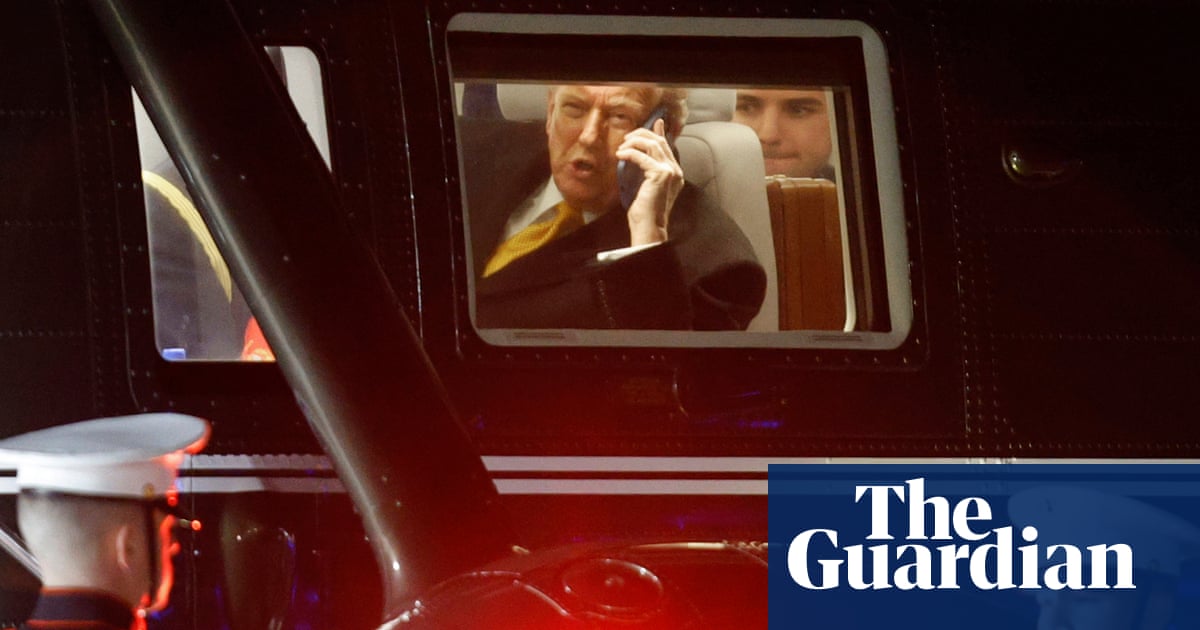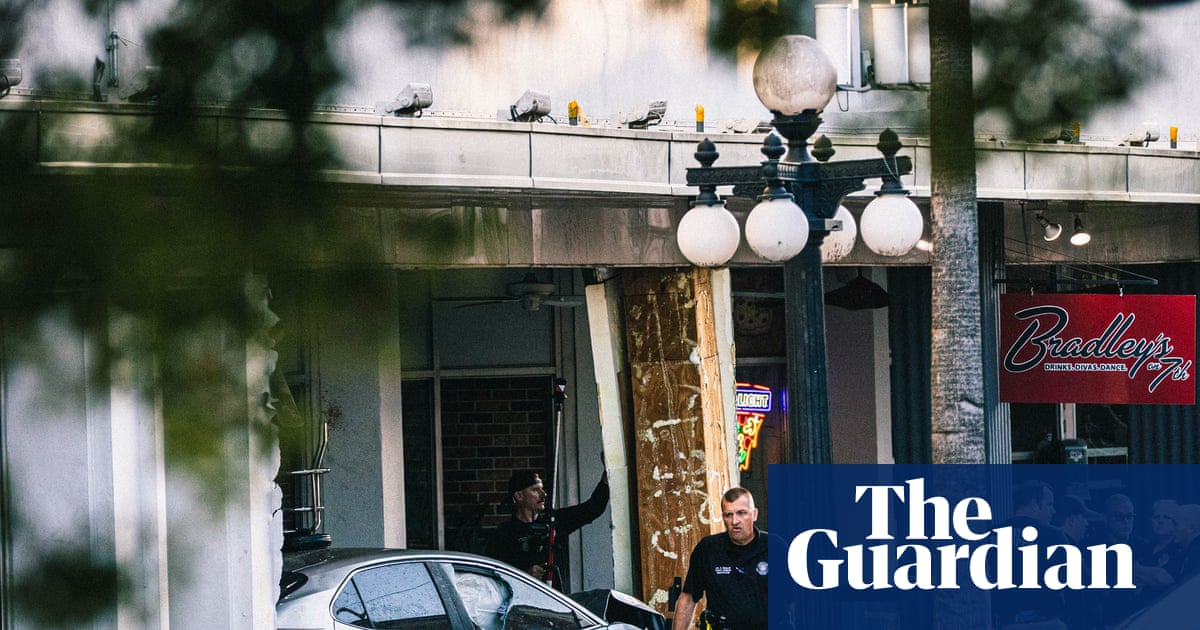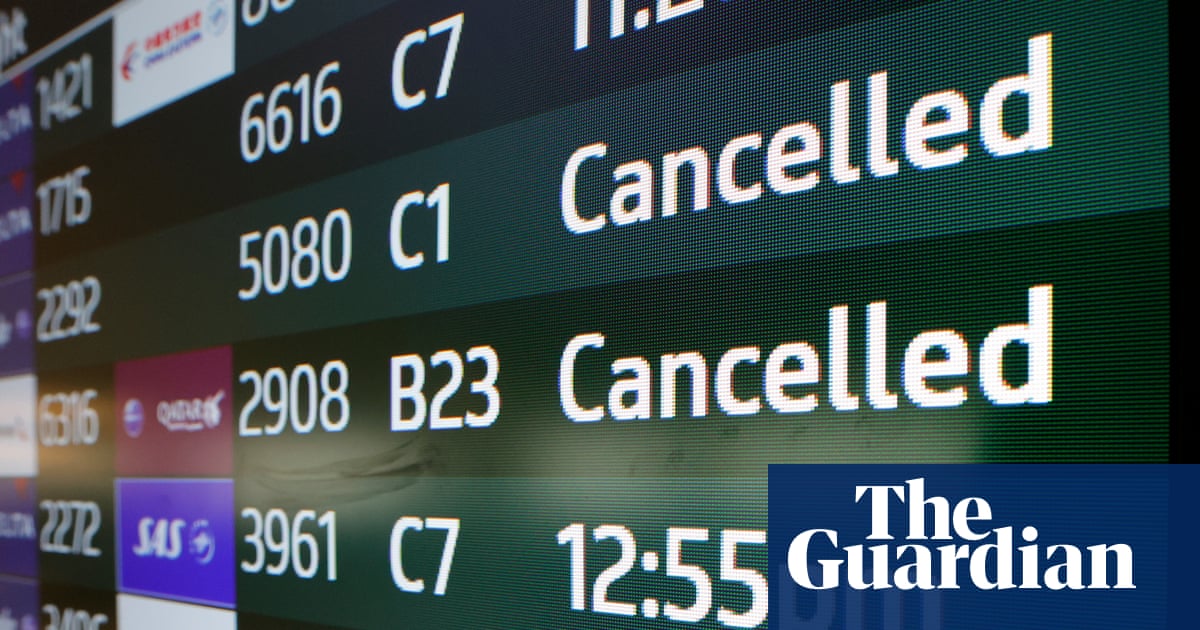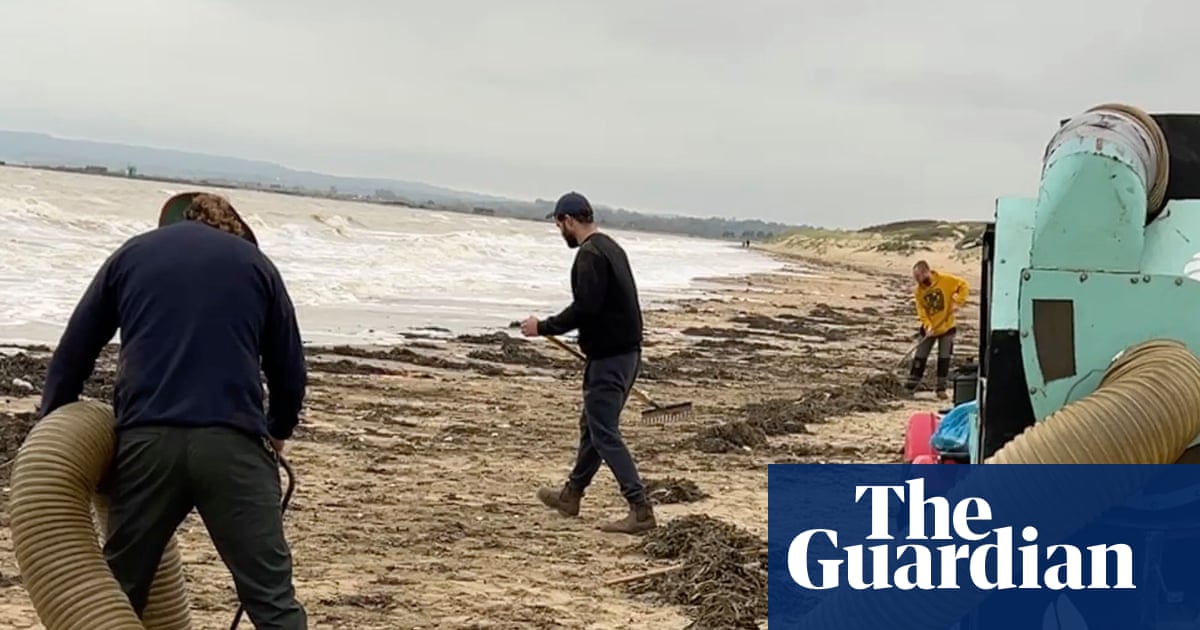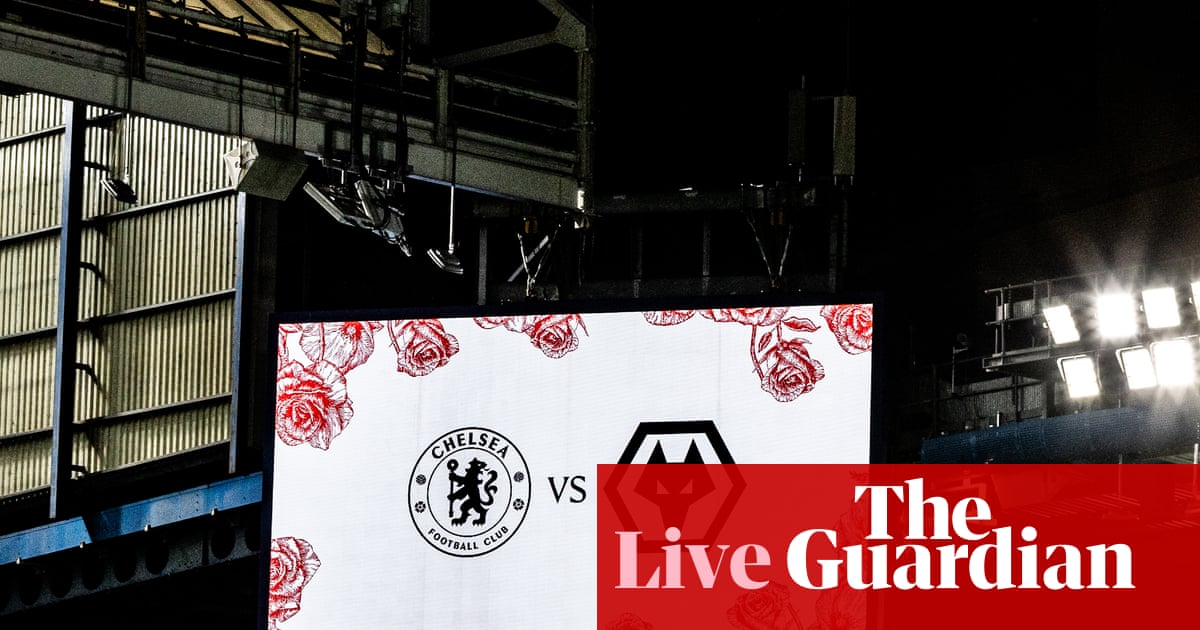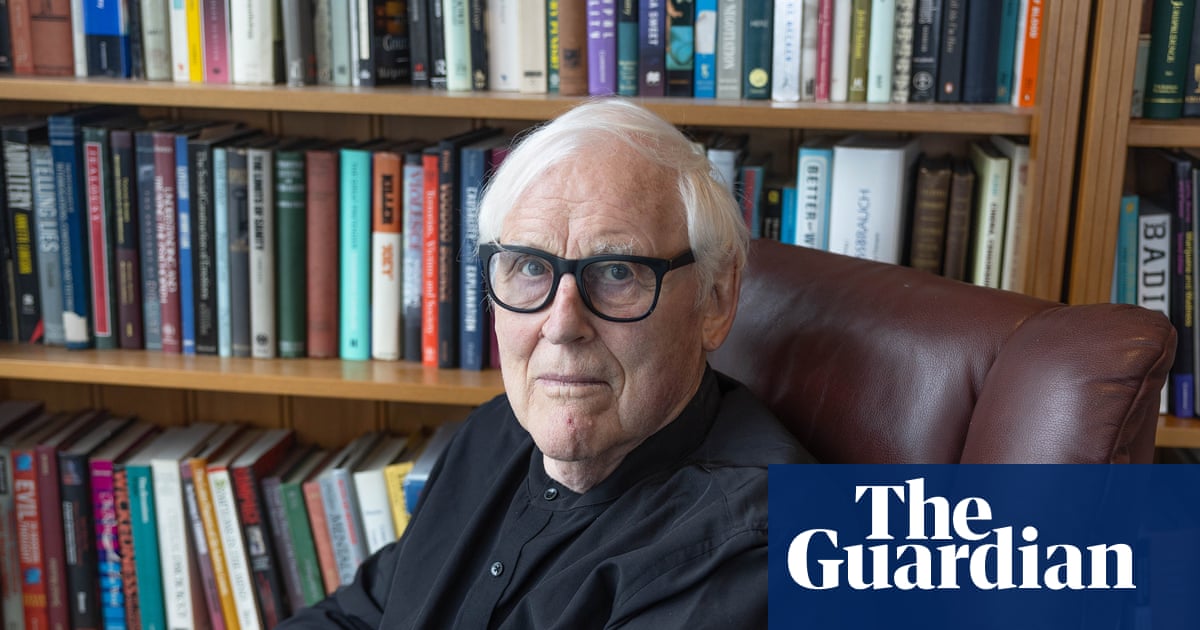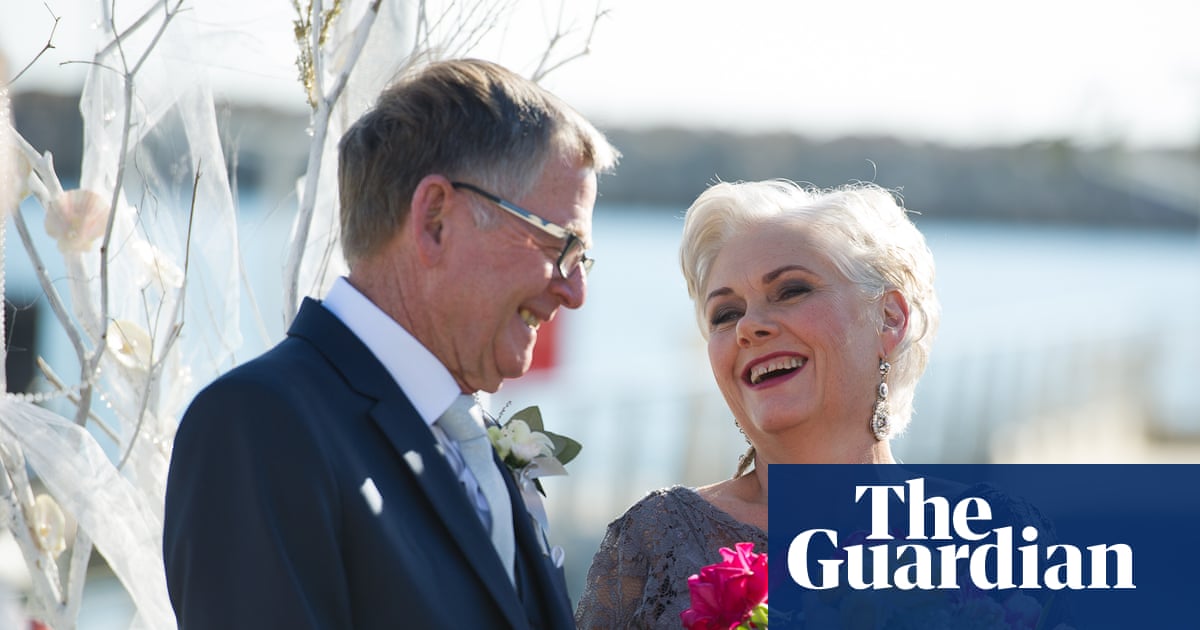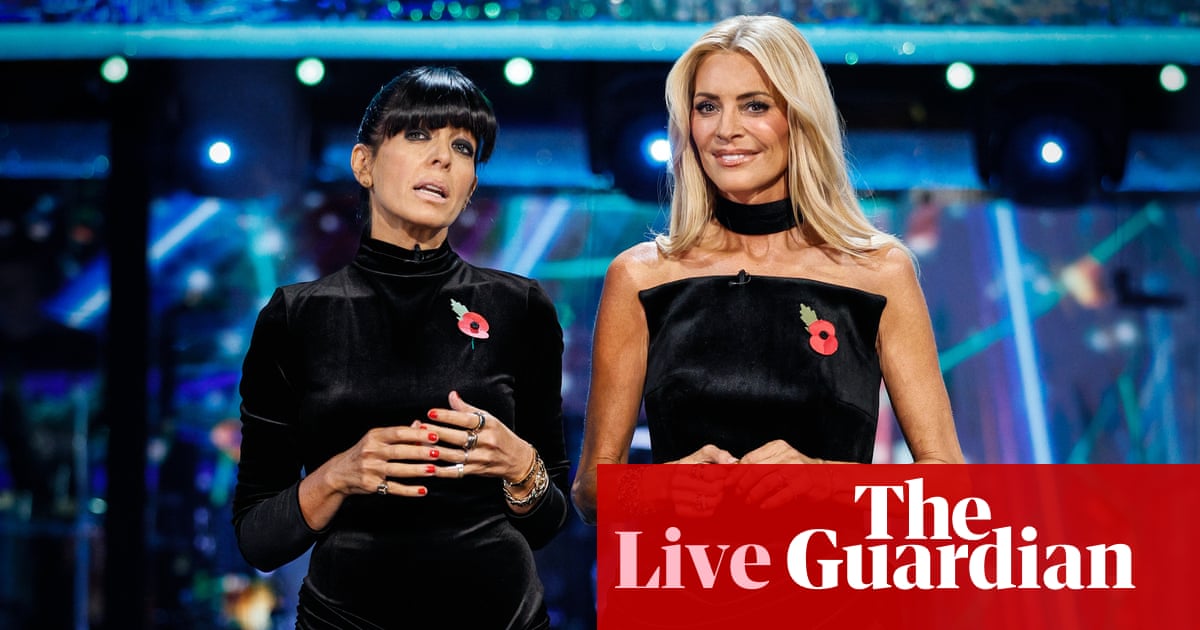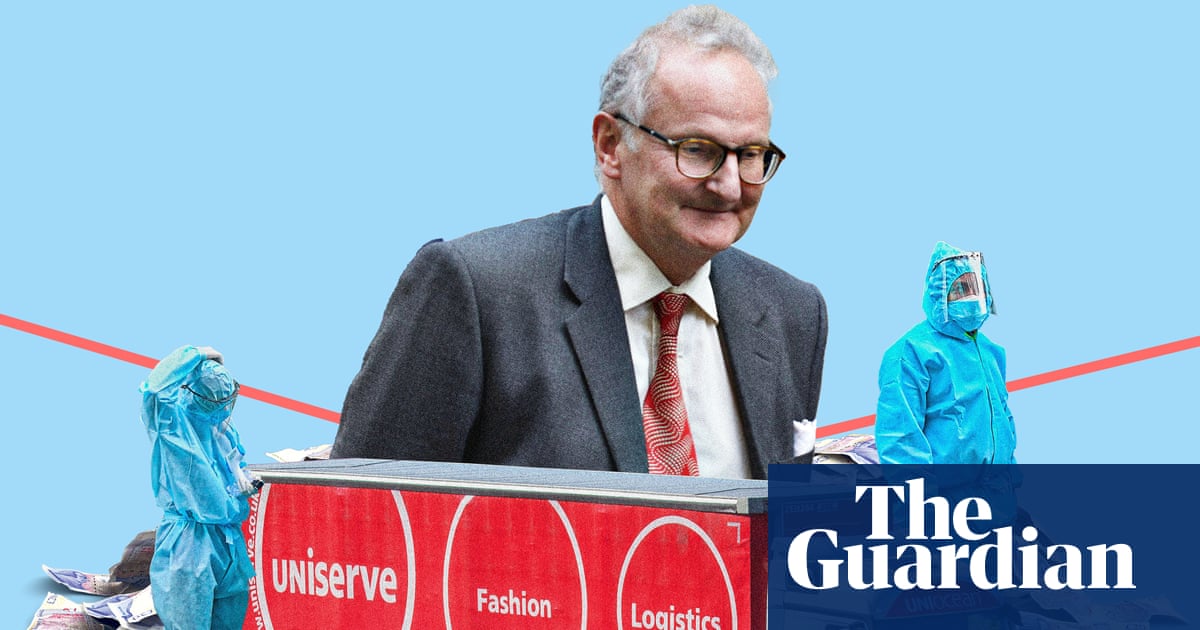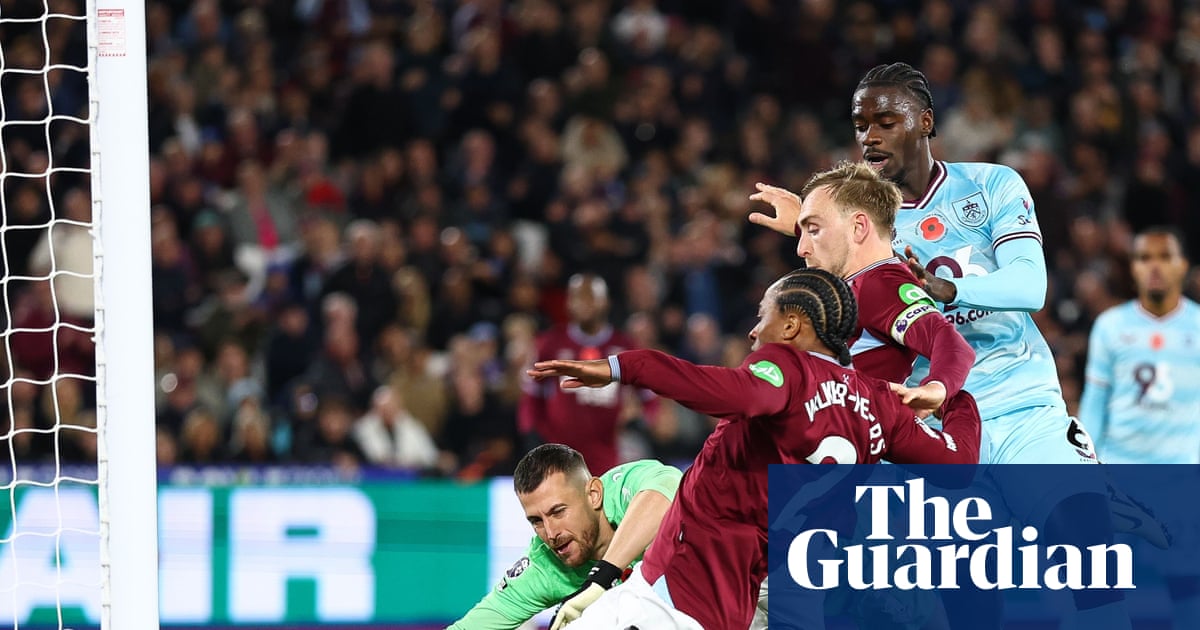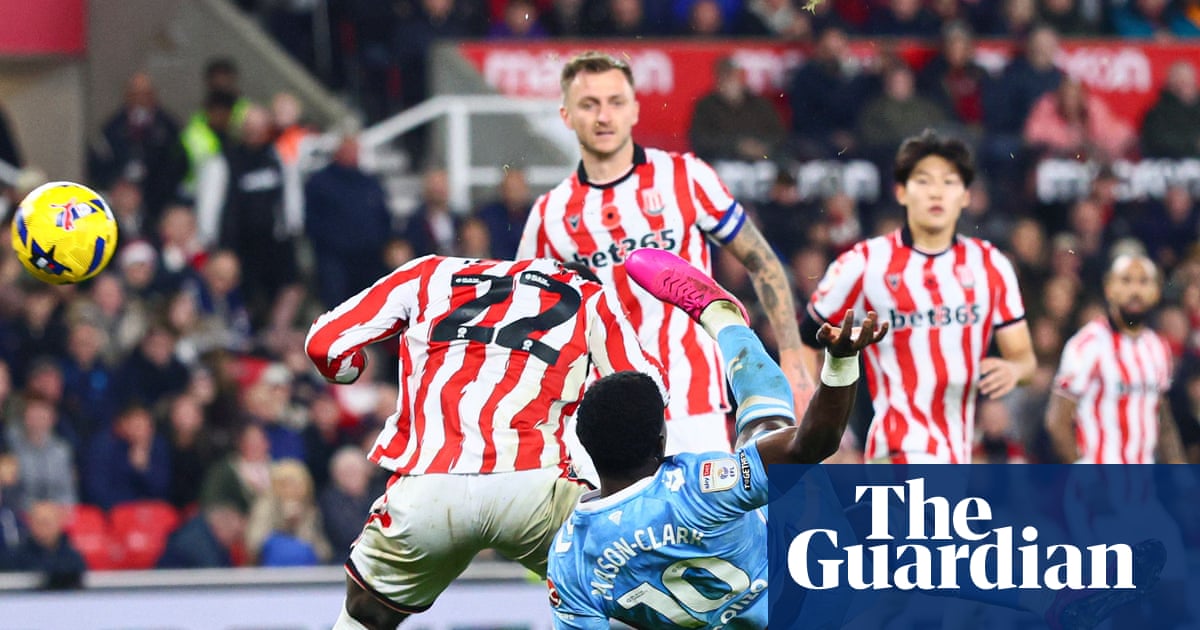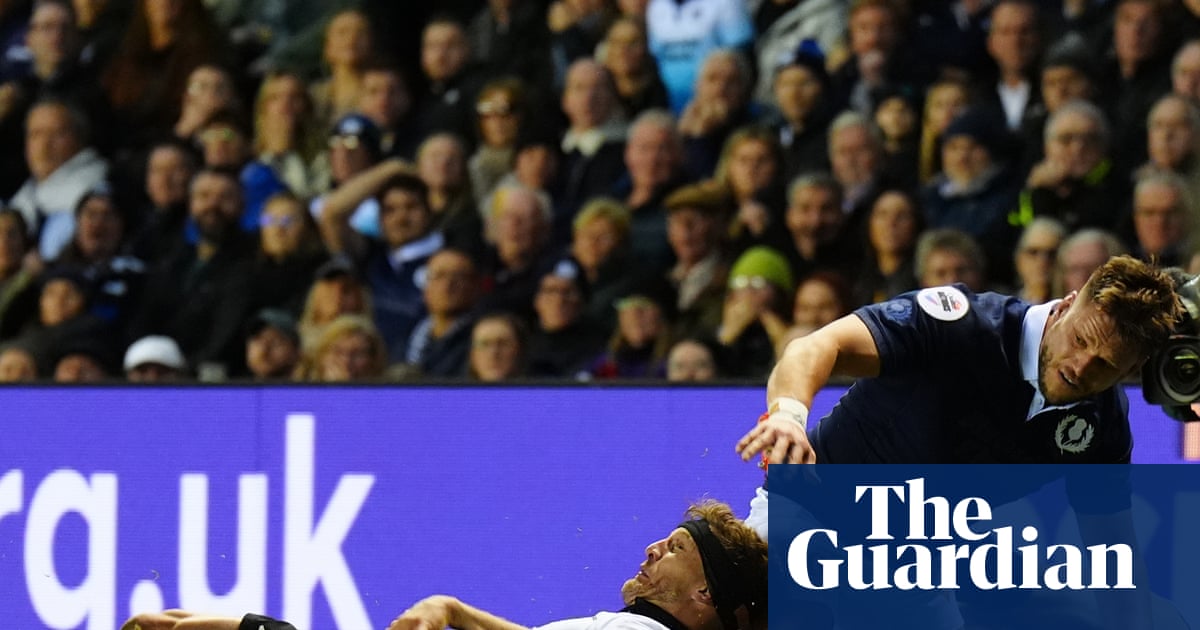The city of Kharkiv, just 18 miles from the Russian border, is a paradoxical mix of tended-to and broken. Public sculptures are wrapped and coddled in sandbags to protect them from missiles. Flowerbeds in parks are punctiliously maintained. The life of the streets is several notches quieter than you would expect from a European country’s second city – and yet, bookshops, coffee shops and restaurants are open and doing a steady business.
-
People browsing the books at Pochaina market
But the signs of Russia’s unrelenting attacks on this frontline city are omnipresent. On the roads are rows of rusted lines of the spiky metal tank obstacles known as “hedgehogs”. The magnificent 1920s Derzhprom building, a constructivist masterpiece and the architectural pride of the city, is now badly battered.
Across the city, windows, blown out from buildings by nightly explosions, have been replaced by sheets of chipboard. One panel in the city centre has been pasted over with a paper cutout of two enfolding arms and the words, “I love you, beloved Kharkiv.”
Cultural life clings on. But it has largely burrowed below ground: the basements of theatres are now their main stages; bookshops’ event venues are subterranean. One Kharkiv visual artist, Kostiantyn Zorkin, has created an apt metaphor for the atmosphere of this underground world. A series of his works imagines wartime Kharkiv as a ship alone in stormy seas, its inhabitants huddled, in relative safety, in the vessel’s hold.
The city’s population now consists of those who have moved here from places even more dangerous; and those who have stayed in their own city either because they must, or from a refusal to let Kharkiv’s urban life die.
Such resolve to stay involves a having made a personal accommodation with the proximity of death. Air defences in Kharkiv are few, and Russia is near. By the time the air-raid alarm sounds, often the missiles are already falling.
Under these circumstances, something as intimate and emotionally charged as a poetry festival – such as the recent two-day event in a below-ground venue in the city centre – takes on a significance and intensity unimaginable in peacetime.
When Kharkiv’s most celebrated poet, novelist and musician Serhii Zhadan performs his own poems, some rapt audience members mouth along, clearly knowing the verses by heart.
“There are more than a million people in Kharkiv,” says Zhadan, now serving with the local Khartiia brigade, between readings. “They have cultural needs. The festival is important from a psychological point of view: they see that they are not alone, that they have not been abandoned, that there are many people around them who share their values, are on the same wavelength.”
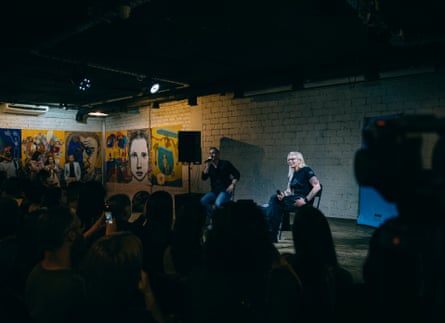
-
Poet Yuliia Paievska on stage at the festival
The festival, organised by publisher Meridian Czernowitz, is the first of its kind in Kharkiv, though the publishing house has conducted events in southern frontline cities such as Odesa, Mykolaiv and Kherson since 2023.
“People from frontline cities can go to a shelter and feel safe and listen to poetry – and while they are doing that, they are not sitting at home listening to drones or reading Facebook,” says organiser Evgenia Lopata.
“Being here means being part of a community that is supporting each other,” she says. It is partly a case of people connecting to fellow Ukrainian speakers in a city that for years has been mainly Russophone, Lopata adds. Though many inhabitants, particularly in the city’s creative community, have shifted to Ukrainian since Russia launched its invasion in 2022.
“People are searching for Ukrainian identity, a lot of people took a big decision to change language to Ukrainian, and people want Ukrainian literature to read,” says Lopata.
“We print all our books in Kharkiv,” she adds, “and we can produce our books only because the people employed at the printworks are still working. The least we can do is come here and do readings.” The sizeable printing industry in Kharkiv is precarious, however: in May last year, several S300 bombs badly damaged the city’s Factor Druk printworks and killed seven people.
The first poet to read at the Kharkiv poetry festival is Yuliia Paievska, a celebrated combat medic with the nom de guerre “Taira”.
She was captured in March 2022 while treating a civilian in Mariupol, and held in captivity in Russia for several months. She endured appalling conditions and torture until her release in June 2022.
Paievska started writing poems in captivity, she says, by taking a tiny piece of plaster and scratching words into the cell wall – a forbidden act. “It pulled me out of the abyss,” she says. Afterwards, she could not remember those fragments with any clarity, only the feelings that had created them. But after her release she began writing poems in earnest.
“It was a way of remaining human, of preserving your mind,” she says of those wall-scratchings after her reading. “I wrote in order to remember who I was … Everything in the Russian penitentiary system is aimed at making you sure that you cannot control anything.” All she could control, she says, were “my breathing and poem-making”.
It is life as a civilian that celebrated film-maker and poet Iryna Tsilyk describes as she takes to the stage, reading, among other poems, My Day, an account of the way that contradictory experiences – sheltering from an air attack, making breakfast for a child, weeping in the shower, choosing wine in the supermarket – are uncomfortably compressed together in wartime Kyiv.
She speaks too of a mounting preoccupation in Ukraine: how those from different parts of society, coping with widely differing experiences of war and trauma, are divided by mutual incomprehension.
She tells the audience of her own experience, when her husband, novelist Artem Chekh, returned home from the frontline in 2016 (he is now serving in Kyiv, after a stint in the battle for Bakhmut in 2023).
“It was a date you’ve been waiting for for six months, and a stranger arrives with sunken shoulders and a glassy stare, because he had spent 10 months in the trenches,” she tells the audience.
“You have no idea how you can be together, how to talk, and how to rebuild a shared space of intimacy. I think that many couples are experiencing this and some, unfortunately, do not survive.”
Many audience members – most of them in their 20s and 30s – stay for the entire programme of conversations and readings that lasts from lunchtime through to 8.30pm. One of the audience, IT worker Olena Dolya, has a fatalistic approach to remaining in the city: “My windows and balcony are intact,” she says. “And I’m more comfortable at home than anywhere else.”
She takes regular trips to Kyiv to experience a fuller cultural life: “I need it and I miss it.” She is reading now more than she has since childhood – “it’s one of my ways of staying sane, and it calms me”, she says.
“It’s very important to have culture during war,” says copywriter Arsenii Vasyliev, also in the audience. “It shows you are human.” According to his girlfriend, ex-librarian Sofia Kyshkovarova, “The festival is a sign that Kharkiv is alive.”
According to Zhadan: “War is a state of maximum abnormality, maximum disintegration. It seems to me that culture, above all else, is capable of somehow conveying these things, of somehow articulating them.
“In 50 or 100 years, if humanity survives, if books survive, then we will learn about this war primarily through literature.”

 3 months ago
84
3 months ago
84
